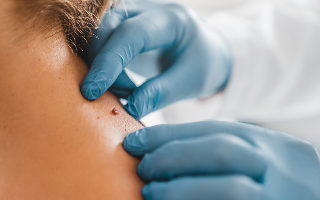
- No win. No fee.
- No hidden costs
- 100% risk-free, only pay if you win
- Home >
- Insights >
- Misdiagnosis Claims >
- The emotional impact of a cancer misdiagnosis
About the Author
Jessica Wright
Medical Negligence Solicitor - LLB (Hons) Anglia Ruskin University
Read more about Jessica »The earlier cancer is detected and diagnosed, the sooner it can be treated – improving the odds that treatment is shorter and less intensive, and that the patient will recover and have a good prognosis.
However, not everyone has this experience. It is not uncommon for the early signs or symptoms of cancer to be mistaken for other conditions, or for screening tests to produce incorrect results.
A cancer misdiagnosis can then lead to the condition developing further, changing the treatment options, prognosis and overall health. Not only will this have physical repercussions on the affected person, but it can understandably cause emotional turmoil for them and their loved ones – particularly if this was due to an avoidable mistake.
In this article, we focus on the emotional impact that a cancer misdiagnosis has on individuals and families, and how making a claim can help to ease that burden moving forward.
The emotions of a cancer misdiagnosis
What can cause a cancer misdiagnosis?
First, it is important to outline how cancers can be misdiagnosed. Again, this is not an entirely rare occurrence – back in 2019, the Daily Telegraph reported that up to two-thirds of all cancer cases in the UK were not picked up by GPs initially.
The frequency of misdiagnoses varies depending on the type of cancer – for instance studies have shown that around 31% of pancreatic cancers are initially diagnosed. There are several reasons why it can be challenging to identify early on, including:
In early stages, it is possible for cancers to present with the same symptoms as other, less dangerous conditions – for example, colorectal cancer can easily be mistaken for IBD (inflammatory bowel disease), ulcerative colitis or haemorrhoids
GPs or other healthcare professionals may overlook potential signs of cancer, fail to order the appropriate diagnostic tests or not send the patient to a specialist
Screening tests for cancers are not 100% accurate – CT scans have a 36% false positive rate, while for biopsies this is approximately 27%
Test results may be misinterpreted by healthcare professionals, become misplaced or get lost in transition from one professional to another, meaning further tests or treatment is avoidably delayed
Whatever the underlying reason, it can mean that a patient’s cancer is allowed to develop and spread before it is correctly diagnosed. By that time, it is possible that a lot has changed:
Their general health may have declined significantly, impacting their ability to work, partake in activities or spend time with their family and friends
Their treatment options may be more severe than if the cancer was spotted sooner – for instance, someone that has to undergo a mastectomy, chemotherapy and radiotherapy for breast cancer might have only required a lumpectomy if diagnosed earlier
Their prognosis might have changed dramatically – a Stage 1 breast cancer diagnosis has a 100% one-year survival rate, while this drops to 63% for a Stage 4 diagnosis
As well as someone’s cancer being overlooked for longer than necessary, it is also important to consider someone receiving a false-positive cancer diagnosis. 4 women out of 100 screened for breast cancer are recalled – and 3 out of these 4 will have received a false-positive after their first scan.
While many might consider this a favourable position as they are cancer-free, this is not always the case:
During the time they were believed to have cancer, they may have begun chemotherapy or radiotherapy, increasing the likelihood of developing cancers later in life for no reason whatsoever
They may have undergone a mastectomy or amputation to remove the cancer
While they received treatment for cancer, the actual condition they came to their GP or another healthcare professional with could have developed and become more threatening to their long-term health
In both cases, the emotional response to a cancer misdiagnosis can be substantial, and often completely understandable depending on the circumstances.
When does a cancer misdiagnosis become significant?
There is no one-size-fits-all answer to this question. Misdiagnosis of a fast-growing cancer such as acute lymphoblastic leukaemia (ALL) will mean treatment options and prognoses change sooner than for cancers that progress slowly.
As a general rule of thumb, we consider a 6-month delay to be the point at which a cancer diagnosis has a noticeable effect on a person’s health, treatment options and prognosis. However, we of course assess each claim individually in order to determine whether the delay has been long enough to alter the claimant’s circumstances.
The emotions of a cancer misdiagnosis
Whether it is an avoidable delay that has allowed a cancer to grow and become more dangerous, or a situation where someone has been told they have cancer when they actually do not, the emotional impact of a cancer misdiagnosis can be substantial and far-reaching in both scenarios.
Delayed cancer diagnosis
Being told that you have cancer is often devastating news for someone to receive on its own.
However, when this is compounded by the revelation that this was initially misdiagnosed and could have been treated sooner, the emotional response can be far stronger.
In our experience, anger and frustration are common responses. Knowing that someone you had complete trust in made an avoidable mistake that led to your condition worsening and reduced your chances of long-term survival, it is completely understandable for somebody to feel aggrieved.
This extends to the wider family and friends of the affected individual as well. To discover that your husband, wife, mother, father, child, etc., did not receive the expected standard of medical care can result in a lot of resentment, sadness and fear:
What could have been done differently?
How am I going to handle this situation?
What does the future hold?
Why did this happen to me?
These are all valid and understandable questions in these circumstances. While for many it is a relief to know what really happened to them, it can be extremely hard to come to terms with it and look beyond the potentially life-changing consequences of this misdiagnosis.
A potential catalyst of this emotional response is a prognosis report. This is a document that we as medical negligence solicitors compile to summarise a claimant’s current and future condition, and how that has changed from if their condition had been diagnosed correctly.
We use this report to help determine the value of a claim, based on what additional requirements the claimant needs due to the misdiagnosis, which may include:
Cancer treatments (chemotherapy, radiotherapy, surgery, etc.)
Loss of earnings due to the need to undergo and recover from treatment
Necessary equipment or renovations to manage their condition
Palliative care requirements
For claimants, a prognosis report is essential to support their claim. However, it can be a stark reminder of where they are now and where their life is going, compared to where they should be. Seeing how their survival rate has changed, or how much more severe their treatment will be, can be the catalyst for feelings of depression, anxiety and anger.
Mistaken cancer diagnosis
For those who received a false cancer diagnosis, it is likely they will feel a measure of relief that this was incorrect. However, this does not mean that any anger or frustration they feel following this revelation is any less justifiable.
Firstly, the relief at the end of this experience does not erase the sadness, fear or stress that a person and their loved ones feel following a misdiagnosis. It could be weeks or months before the misdiagnosis is discovered – in that time there would likely be plenty of sleepless nights, tough conversations with family members, planning for the future and lifestyle changes.
To learn that all of this turmoil was completely avoidable would understandably leave a person frustrated about the challenges they and their loved ones experienced – particularly if the misdiagnosis suggested the condition was terminal.
Furthermore, if they have undergone unnecessary treatment for a cancer they do not have, this could spark negative feelings for several reasons:
The treatment itself could have been painful or uncomfortable, or resulted in them experiencing permanent damage or disfigurement
The actual illness they came to their GP with has been untreated, which may have repercussions on treatment and prognosis
They have been unable to work, partake in hobbies, socialise, etc. during their treatment, impacting their quality of life
This placed additional pressure on the person’s loved ones to take care of them during this time, compromising their own lives
Finally, it is also likely that the misdiagnosed person will feel guilty that they received treatment that should have been reserved for someone who actually has cancer. There can be long waiting lists for cancer treatments, with delays potentially putting patients’ health at greater risk.
Many of our past clients who have been incorrectly diagnosed with cancer have felt a great deal of sympathy towards those who had their treatment delayed because of them, and consequently a great deal of anger towards those who misdiagnosed their condition.
Making a claim following a cancer misdiagnosis
With over 25 years’ experience handling complex cancer misdiagnosis claims, we understand that emotions can run high in these situations.
While we cannot undo the emotional and physical damage you have endured, we will work with you to seek the justice and compensation you deserve to secure your future, and hopefully grant you some peace of mind.
If you or a loved one have been affected as a result of a cancer misdiagnosis, get in touch with our medical negligence specialists today.
Disclaimer
All content contained within this article is meant for general information only – this should not be treated as a substitute for medical advice from your doctor or another healthcare provider. If you require legal advice specific to your situation, please contact our team directly.
Gadsby Wicks is not liable for any diagnosis made from the content of this article, nor does it endorse any service or external site linked to within the article.
Always consult your GP if you are concerned about your health and wellbeing, or speak to us if you require legal advice.


How can a medical misdiagnosis change your life?




 Back to top
Back to top